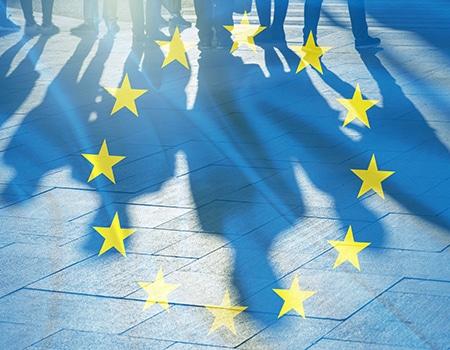The EU-Western Balkans Summit signals commitment to the region but lacks enlargement ambition

The EU-Western Balkans Summit, which was supposed to be a highlight of the Croatian Presidency of the Council of the EU and mark the symbolic 20th anniversary of the first Summit held in Zagreb, was largely overlooked. It was not only because the Summit was organised as an online format due to the COVID-19 pandemic, but more importantly, the Summit’s final declaration avoided any mention of either a clear enlargement message or negotiations timeframe. As in the past, the “EU (…) reaffirmed its unequivocal support for the European perspective of the Western Balkans.“
Instead of a clear enlargement promise, the EU has built this e-Summit’s narrative around a significant aid package of over EUR 3.3 billion to support the Western Balkans in tackling COVID-19 and helping the region with the post-pandemic recovery. The narrative was twofold. First, the EU emphasized that its support in times of pandemic goes far beyond what any other partner has provided the region with. Second, the EU aimed to demonstrate its solidarity with the region in difficult times and it didn’t shy away to mention that this “deserves public acknowledgement”. The latter message could have been explicitly aimed at Serbia’s President Aleksandar Vučić who praised the Chinese assistance and prematurely announced the „non-existence of European solidarity“.
When it comes to the EU support and specific areas of cooperation, the President of the European Commission Ursula von der Leyen announced that once the immediate phase of the pandemic is over, the EU will present the investment plan in the region. It will focus on the transport and energy infrastructures to interconnect the region, but also on the sectors related to the EU main policies such as the Green New Deal and digitalisation.
Referring to the geopolitical developments, the EU leadership has called on its Western Balkan partners to progress towards full alignment with the EU foreign policy positions, notably on issues where major common interests are at stake, and to act accordingly.
To conclude, Croatian Prime Minister Andrej Plenković, who has been a staunch promoter of the region, stated that looking at geography there is nowhere else the Western Balkan countries could go. In fact, the geopolitical European Commission should not have illusions that the influence of the other powers, such as China, Russia and Turkey, would decrease. And in order to win the battle of narratives and not let third actors have a prevailing influence in the Western Balkans, the EU should act fast and provide a clear strategy for its immediate neighbours.

Former Research Fellow and European Neighbourhood Programme Manager